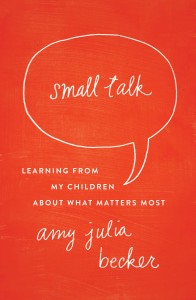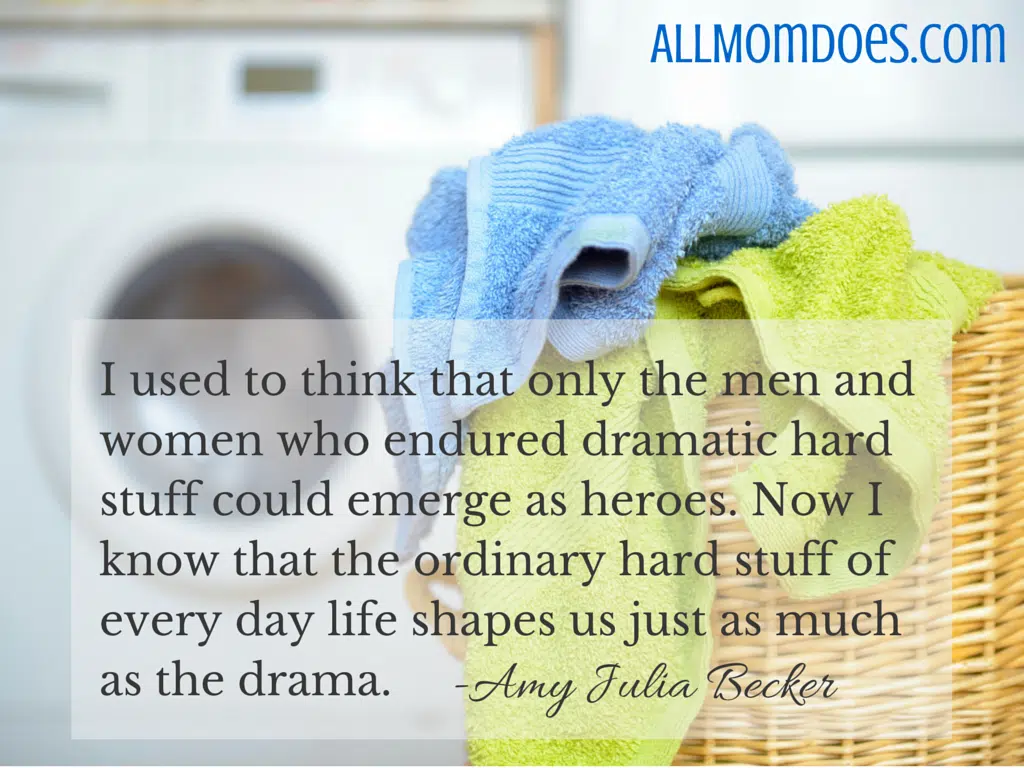When our first child was born, we learned that she had Down syndrome. We entered a period of what I have taken to calling “dramatic hard stuff,” a time of emotional and spiritual transformation that began with a fair amount of pain and grief, fear and anger. So when I gave birth to our second and third children, and they did not receive any dramatic diagnoses, I expected an easy period of infancy and toddlerhood. I was wrong.
Our son William cried for most of the first year of his life. Two years later, our daughter Marilee emerged as a much happier baby, but the days still felt like endless cycles of laundry and dishes and temper tantrums and potty training and spilled milk. With Penny, in the midst of the drama of an unusual diagnosis, I knew that I didn’t need to “have it all together.” With children number two and three, I thought I needed to bounce back to regular exercise, work, volunteer, and church participation within a few weeks. I thought I needed to withhold the truth that I found myself unraveling, yelling at our children and spiraling down into a place where wine and nachos offered my greatest consolation.
It turns out that “ordinary hard stuff” posed as much of a challenge to my faith as “dramatic hard stuff.” It also turns out that God showed up in the ordinary, just as God showed up in the drama. And in both, the experience of God’s presence through hardship ultimately helped me to grow up and know God’s transformative work in my life.
In the drama, I stopped praying and relied on other people for a time. In the ordinary, my prayer life was also upended. I eventually stopped berating myself for not waking up early enough for “quiet time” without the kids, and instead invited them to join me in a conversation with God. In the drama, I turned to the dramatic stories of Scripture as a reminder of the pattern God is always working out, from brokenness to wholeness, from grief to redemption. Similarly, in the ordinary, I began to see the Bible’s witness to God’s hand in the ordinary stuff of life—from the passages in Exodus about what to eat and what to wear to Jesus’ very ordinary prayer that God “give us this day our daily bread.”
As I look back on both the dramatic and the ordinary, I think of Joseph Campbell, an American scholar who detailed what he calls the “hero’s journey.” It’s a pattern throughout literature and film: a main character moves from their ordinary life through a time of intense challenge and seeming defeat and then emerges stronger and wiser because of the challenge. Jesus’ own story is one of great challenge and seeming defeat that ends in glorious victory, and throughout the Bible characters encounter difficulty that eventually leads to positive transformation.
I used to think that only the men and women who endured dramatic hard stuff could emerge as heroes. Now I know that the ordinary stuff of every day life—the stressful day at work, the child with strep throat, the unnecessary harsh words with a spouse in the morning rush—the ordinary hard stuff shapes us just as much as the drama. And from it, we can emerge transformed, by God’s grace, into ones who have learned a little bit more about how to love and be loved in return.
————————————————————————————————
Award-winning author Amy Julia Becker finds much wisdom in meaningful – and sometimes difficult – conversations with her children. Talking with, and listening to, her kids has helped Becker to refine her understanding of what she believes, whether her son asks if Santa loves him or her daughter wonders if Mommy was a jerk while driving. Her new book, Small Talk: Learning From My Children About What Matters Most dedicates each chapter to a specific issue she and her kids have discussed: tough topics such as illness, death, disability and tragedy; and moments of grace, forgiveness, friendship and gratitude.
A copy of her book could be yours for FREE. Simply check out our contest page and enter to win! You have five chances to win, and one lucky winner will also get a Papa Murphy’s Family Meal Deal!


















